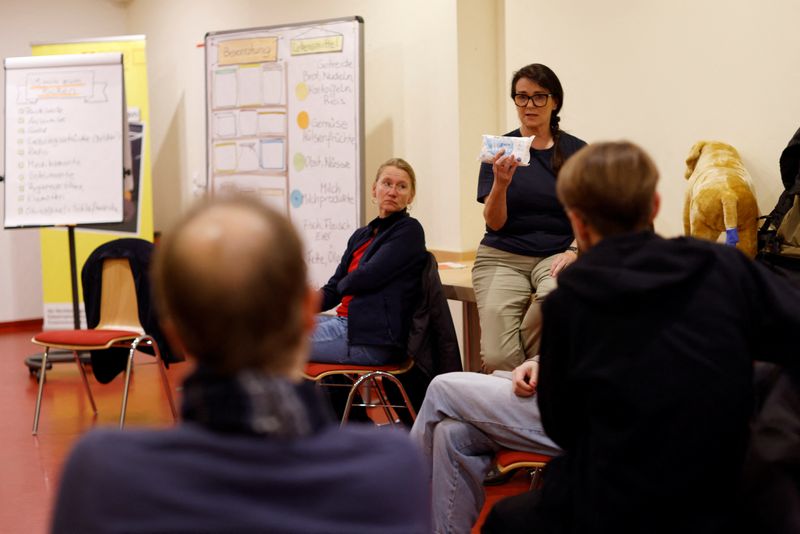BERLIN (Reuters) - Once purely the stuff of action movie plots, the prospect of the lights going out in Europe's biggest economy has become a conceivable threat during the current energy crisis.
Looking to be the heroes in a real-life blackout, a growing number of Germans are turning to citizens' courses to learn how to act if they find themselves plunged into darkness.
"If the electricity goes out then absolutely nothing works any more. And we need to understand what 'nothing working' really means," said Birgitt Eberlin, an instructor at the Workers' Samaritan Federation (ASB).
Simple tasks - from cooking a meal and keeping hydrated to caring for pets or ringing a neighbour's doorbell - become major challenges.
The German aid and welfare organisation offers free-of-charge courses on the subject on behalf of the BBK government agency for civil protection and disaster assistance.
Eberlin talks her students through the basics - including being prepared with candles, matches and headlamps - at the charity's premises in southeast Berlin before hitting the lights and conducting part of the lesson by torchlight.
"Three generations ago people knew what being without electricity was like. Today we realise that we can barely function without electricity," said Albrecht Broemme, a former Berlin fire chief who was brought out of retirement to help build infrastructure for the pandemic then the arrival of Ukrainian refugees.

Germany's national network agency has warned of possible gas rationing this winter after Russian energy imports to Germany plunged following the invasion of Ukraine.
However, with gas storages almost full and an unusually warm autumn helping with efforts to save on heating, Germany hopes to avoid unannounced blackouts.